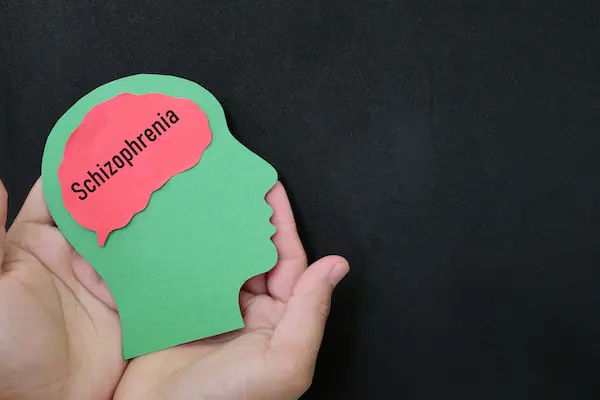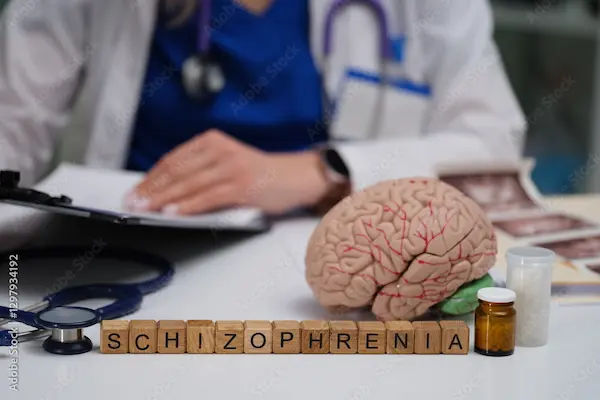Guide to National Schizophrenia Awareness Day
Discover the significance of National Schizophrenia Awareness Day. Learn the facts, bust common myths, and find out how to support loved ones and advocate for a more compassionate world.


Schizophrenia is one of the most misunderstood and stigmatized mental health conditions in the world. National Schizophrenia Awareness Day serves as a vital annual reminder to cut through the misinformation and foster a society grounded in empathy, knowledge, and support. This day is not just about recognizing the challenges faced by the millions living with this complex brain disorder; it's about actively working to dismantle the prejudice that often isolates them and their families. In this guide, we will explore the significance of this important day, break down the facts from the fiction, and provide actionable steps for supporting loved ones and advocating for change. By deepening our understanding of schizophrenia, we can all contribute to a more inclusive and compassionate world where everyone has the opportunity to seek help and thrive.
What is National Schizophrenia Awareness Day?
National Schizophrenia Awareness Day is a dedicated day aimed at raising public knowledge about schizophrenia, challenging the harmful stereotypes that surround it, and showing solidarity with those affected by the condition. It's a day for education, advocacy, and human connection, pushing back against the isolation that stigma creates.
When is it Observed?
It's important to note that the date can vary by country. In the United States, it is typically observed on July 25th. In the United Kingdom, the charity Rethink Mental Illness leads the campaign on May 24th. Regardless of the date, the core mission remains consistent across the globe.
The Symbolism of the Silver Ribbon
The international symbol for schizophrenia awareness is the silver ribbon. Much like the pink ribbon for breast cancer, wearing a silver ribbon is a simple yet powerful gesture. It signals your support, sparks conversations, and demonstrates a commitment to replacing fear with facts. On this day, you'll see these ribbons displayed online and in communities as a universal sign of compassion and solidarity.
Understanding Schizophrenia
Pop culture often paints a distorted and sensationalized picture of schizophrenia. It's crucial to move beyond these
myths and understand the clinical reality.
What Schizophrenia Is?
Schizophrenia is a chronic and severe mental disorder that affects a person’s ability to think, feel, and behave clearly. It is a neurodevelopmental disorder with a strong genetic component, often combined with environmental factors.
* It is NOT: "Split personality" (that's Dissociative Identity Disorder).
* It is NOT a sign of weakness or a character flaw.
* It is NOT synonymous with violence. In fact, individuals with schizophrenia are far more likely to be victims of
violence than perpetrators.
Common Symptoms of Schizophrenia
Symptoms are typically divided into three categories and can vary in severity.
Positive Symptoms
These are "additions" to a person’s personality or distortions of normal function.
- Hallucinations: Hearing, seeing, or feeling things that aren't there. Auditory hallucinations (hearing voices) are most common.
- Delusions: Fixed false beliefs that are not based in reality, such as paranoia or grandiose ideas.
- Disorganised Thinking: Incoherent speech and thought patterns.
Negative Symptoms
These reflect a "loss" or reduction of normal function.
- Avolition: A severe lack of motivation or initiative.
- Flat Affect: Reduced expression of emotion via facial expression or voice tone.
- Anhedonia: Inability to experience pleasure from activities usually found enjoyable
- Social Withdrawal: Pulling away from family, friends, and social activities.
Cognitive Symptoms
These involve problems with thought processes.
- Poor Executive Functioning: Trouble understanding information and using it to make decisions.
- Focus and Memory Issues: Difficulty focusing attention and problems with working memory.
If symptoms like these persist and impact daily life, it is crucial to seek professional help.
Consult Top Specialists
The Profound Impact of Stigma
Perhaps the biggest barrier to recovery for someone with schizophrenia is not the illness itself, but the stigma attached to it.
How Stigma Affects Individuals and Families
Stigma leads to:
- Discrimination: In employment, housing, and healthcare.
- Social Isolation: Fear of judgment causes people to hide their condition, leading to loneliness.
- Reluctance to Seek Help: Shame and embarrassment can prevent individuals from getting an early diagnosis and effective treatment, which is critical for long-term management.
- Caregiver Stress: Family members often face judgment and a lack of support, increasing their burden.
Changing the Narrative: From Fear to Compassion
We change the narrative by choosing our words carefully (using person-first language like "a person with
schizophrenia" instead of "a schizophrenic"), by sharing stories of recovery and resilience, and by challenging
stigmatizing remarks when we hear them. Education is the most powerful tool against fear.
How to Support a Loved One with Schizophrenia?
- Support from family and friends is a cornerstone of effective schizophrenia management.
- Educate Yourself and Listen Without Judgment
- The first and most important step is to learn about the condition. Understand that symptoms are part of an illness, not a choice. Practice active listening. You don't always need to offer solutions; sometimes, just being a non-judgmental presence is enough.
Encouraging and Supporting Treatment
Recovery is often a long-term process involving medication, therapy, and social support. You can help by:
- Encouraging adherence to prescribed treatment plans.
- Offering to attend therapy sessions together if your loved one is comfortable.
- Helping them set up and get to appointments.
Taking Care of Yourself as a Caregiver
Supporting someone can be emotionally taxing. You cannot pour from an empty cup. Join a schizophrenia support
group for families, seek therapy for yourself, and ensure you are taking time for your own health and hobbies. Your well-being is essential to providing sustained support.
Supporting Mental Health Organizations
Consider donating to or volunteering with organizations dedicated to mental health research, advocacy, and direct
support. These groups work tirelessly to provide resources and fight for the rights of those with mental illness.
- Advocating for Better Policies and Funding
- Reach out to local and national representatives. Advocate for policies that improve access to mental health care, protect against discrimination, and increase funding for research into new treatments for schizophrenia. Your voice matters in shaping a better system.
Conclusion
National Schizophrenia Awareness Day is more than a date on the calendar; it is a call to action. It urges us to replace ignorance with understanding, fear with empathy, and isolation with community. By learning the facts about schizophrenia, we disarm the stigma that causes so much unnecessary pain. We become better allies, family members, and friends. We create a society where people feel safe to seek help without shame. The journey toward mental health equity continues long after this day ends, but it starts with each of us committing to be a part of the solution. Let’s carry the spirit of this day forward, championing compassion and support every day of the year.
Consult Top Specialists
Consult Top Specialists

Dr Rohit Ranjan
Psychiatrist
10 Years • MBBS, MD (Psychiatry)
Bengaluru
Apollo Medical Center, Marathahalli, Bengaluru
(25+ Patients)

Dr. Kommoju Venkata Eswar
Psychiatrist
8 Years • MBBS, MD Psychiatry
Avenue
Wellness Point, Avenue

Dr. Vivek Pathak
Psychiatrist
15 Years • MBBS, MD (Psychiatry)
Noida
𝗗𝗿 𝗞𝗨𝗠𝗔𝗥'𝗦 𝗙𝗔𝗠𝗜𝗟𝗬 𝗖𝗟𝗜𝗡𝗜𝗖 𝗮𝗻𝗱 𝗩𝗔𝗖𝗖𝗜𝗡𝗔𝗧𝗜𝗢𝗡, Noida
(25+ Patients)

Dr. Kamal Kishore Verma
Psychiatrist
15 Years • MBBS, MD (SPM), DNB (Psychiatry)
Mathura
PEACEFUL MIND CLINIC, Mathura
(50+ Patients)

Dr Harish K S
Psychiatrist
6 Years • MBBS, MD Pychaitrist
Bengaluru
Apollo Clinic, JP nagar, Bengaluru
Consult Top Specialists

Dr Rohit Ranjan
Psychiatrist
10 Years • MBBS, MD (Psychiatry)
Bengaluru
Apollo Medical Center, Marathahalli, Bengaluru
(25+ Patients)

Dr. Kommoju Venkata Eswar
Psychiatrist
8 Years • MBBS, MD Psychiatry
Avenue
Wellness Point, Avenue

Dr. Vivek Pathak
Psychiatrist
15 Years • MBBS, MD (Psychiatry)
Noida
𝗗𝗿 𝗞𝗨𝗠𝗔𝗥'𝗦 𝗙𝗔𝗠𝗜𝗟𝗬 𝗖𝗟𝗜𝗡𝗜𝗖 𝗮𝗻𝗱 𝗩𝗔𝗖𝗖𝗜𝗡𝗔𝗧𝗜𝗢𝗡, Noida
(25+ Patients)

Dr. Kamal Kishore Verma
Psychiatrist
15 Years • MBBS, MD (SPM), DNB (Psychiatry)
Mathura
PEACEFUL MIND CLINIC, Mathura
(50+ Patients)

Dr Harish K S
Psychiatrist
6 Years • MBBS, MD Pychaitrist
Bengaluru
Apollo Clinic, JP nagar, Bengaluru
More articles from Schizophrenia
Frequently Asked Questions
1. What is the main difference between schizophrenia and multiple personality disorder?
Schizophrenia involves psychosis, such as hallucinations and delusions, where a person loses touch with reality. Dissociative Identity Disorder (formerly multiple personality disorder) involves a person switching between two or more distinct identity states. They are fundamentally different conditions.
2. Can people with schizophrenia live a normal life?
Yes. With a consistent treatment plan that includes medication, therapy, and strong social support, many people with schizophrenia manage their symptoms, work, have relationships, and lead fulfilling, independent lives. Recovery is an ongoing process, but a high quality of life is absolutely achievable.
3. Is schizophrenia hereditary?
Genetics play a significant role. Having a first-degree relative (parent, sibling) with schizophrenia increases one's risk. However, it's not deterministic; environmental factors are also believed to contribute to its development.
4. What are the early warning signs of schizophrenia?
Early signs often appear in young adulthood and may include social withdrawal, decline in academic or work performance, unusual speech or thinking, suspiciousness, and a lack of personal hygiene. If you notice these early signs of psychosis in a loved one, consulting a doctor for an evaluation is a critical first step.
5. How can I talk to someone who is experiencing paranoia or hallucinations?
Stay calm and be empathetic. Don’t argue with them about their reality, as this can be agitating. Instead, acknowledge their feelings ('I understand that this feels very real and scary to you') and gently redirect the conversation to something concrete or offer comfort. Encourage them to talk about their experience if they feel safe to.


